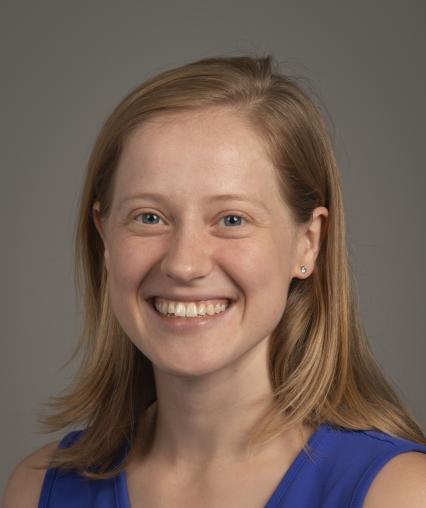
Alexandria Viegut, Ph.D.
Contact Information
Mondays 3:00-4:00pm (in person)
Thursdays 4:00-5:00pm (Zoom)
and by appointment
Biography
In my teaching and research, I focus on educational and developmental psychology. I teach courses that address questions about how people learn and grow, and I love to help students think about how to apply developmental science to real-life challenges. My research focuses on children’s cognitive development, especially in mathematics. For example, one line of my work investigates how students build an understanding of fractions. I ask broad questions like: Why are fractions so hard to understand for so many students? How do different visual models like number lines, pizza models, or gestures influence students' thinking in math? How can instruction most effectively leverage children's prior knowledge and informal math experiences to help them learn new ideas? If questions like these sound interesting to you too, please reach out about joining my Cognitive Development Lab!
Education
Postdoc, Learning Sciences, University of Delaware, 2023
Ph.D., Educational Psychology, University of Wisconsin–Madison, 2022
M.S., Educational Psychology, University of Wisconsin–Madison, 2019
B.A., Psychology, University of Notre Dame, 2017
Teaching and Research Interests
Educational Psychology
Human Development
My research draws on cognitive science, developmental psychology, and mathematics education. Right now, my main research focus is measuring and supporting students' understanding of fractions, especially through visual models. A second line of my work, which is supported by a 5-year National Science Foundation grant in collaboration with UW–Madison, focuses on how and why fraction knowledge supports success in algebra. I care a lot about making research accessible and relevant to practitioners (teachers, parents, caregivers), and I am working to build partnerships with schools to support students’ success. For more information about my research, visit my website: https://sites.google.com/view/alexviegut/
I enjoy mentoring undergraduates in research experiences, including independent projects. My own career path was motivated by my experiences as an undergraduate research assistant, and I enjoy creating individualized experiences for research assistants that are tailored to their interests and professional goals. Undergraduates in my lab participate in many parts of the research process, from crafting research questions and designing studies to collecting, analyzing, and reporting results for conferences or publications. Please email me if you are interested in working with me!
Published Research
Viegut, A. A., Stephens, A. C., & Matthews, P. G. (2024). Unpacking the connections between fractions and algebra: The importance of fraction schemes and units coordination. Investigations in Mathematics Learning. https://doi.org/10.1080/19477503.2024.2307805
Matthews, P. G. & Viegut, A. A. (2024) Reflections on the power of genetic epistemology by the modern cognitive psychologist. In Dawkins, P. C., Hackenberg, A. J., & Norton, A. (Eds.), Piaget’s Genetic Epistemology In and For Ongoing Mathematics Education Research. New York: Springer.
Viegut, A. A., & Matthews, P. G. (2023). Building fraction magnitude knowledge with number lines: Partitioning versus analogy. Developmental Psychology 59 (10), 1757–1770. https://doi.org/10.1037/dev0001616
Viegut, A. A., Resnick, I., Miller-Cotto, D., Newcombe, N. S., & Jordan, N. C. (2023). Tracking informal fraction knowledge and its correlates across first grade. Developmental Psychology 59(10), 1739–1756. https://doi.org/10.1037/dev0001581
Park, Y., Viegut, A. A., & Matthews, P. G. (2021). More than the sum of its parts: Exploring the development of ratio magnitude vs. simple magnitude perception. Developmental Science, 24(3), e13043. https://doi.org/10.1111/desc.13043